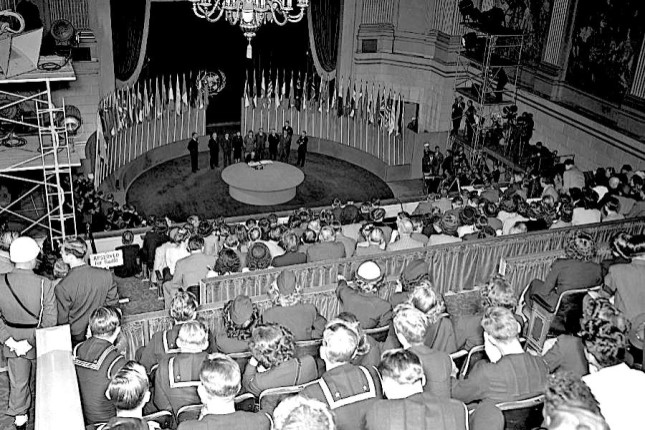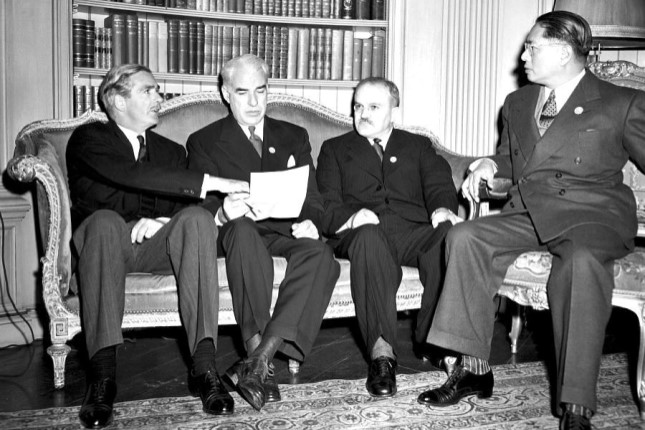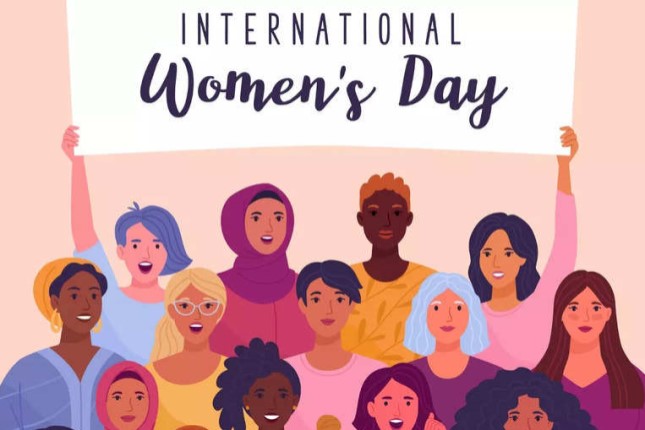U.S. foreign policy is based on an inherent contradiction and fatal flaw. The aim of U.S. foreign policy is a U.S.-dominated world, in which the U.S. writes the global trade and financial rules, controls advanced technologies, maintains militarily supremacy and dominates all potential competitors. Unless U.S. foreign policy is changed to recognize the need for a multipolar world, it will lead to more wars, and possibly World War III.
The inherent contradiction in U.S. foreign policy is that it conflicts with the U.N. Charter, which commits the U.S. (and all other U.N. member states) to a global system based on U.N. institutions in which no single country dominates. The fatal flaw is that the U.S. has just 4 percent of the world population, and lacks the economic, financial, military and technological capacities, much less the ethical and legal claims, to dominate the other 96 percent.
At the end of World War II, the U.S. was far ahead of the rest of the world in economic, technological and military power. This is no longer the case, as many countries have built their economies and technological capacities.

Members of the foreign press and delegations visit the Cutter Laboratory in Berkeley, California, for a look at the molding process during meetings for the signing of the U.N. Charter between April 25 and June 26, 1945. Photo: U.N. Photo / Rommel.
French President Emmanuel Macron recently spoke the truth when he said that the European Union, though an ally of the U.S., does not want to be a vassal of the U.S. He was widely attacked in the U.S. and Europe for uttering this statement because many mediocre politicians in Europe depend on U.S. political support to stay in power.
In 2015, U.S. Ambassador Robert Blackwill, an important U.S. foreign policy strategist, described U.S. grand strategy with exceptional clarity. He wrote, “Since its founding, the United States has consistently pursued a grand strategy focused on acquiring and maintaining preeminent power over various rivals, first on the North American continent, then in the Western hemisphere, and finally globally,” and argued that “preserving U.S. primacy in the global system ought to remain the central objective of U.S. grand strategy in the twenty-first century.”
To sustain U.S. primacy vis-à-vis China, Blackwill laid out a game plan that President Joe Biden is following. Among other measures, Blackwill called on the U.S. to create “new preferential trading arrangements among U.S. friends and allies to increase their mutual gains through instruments that consciously exclude China,” “a technology-control regime” to block China’s strategic capabilities, a build-up of “power-political capacities of U.S. friends and allies on China’s periphery” and strengthened U.S. military forces along the Asian rimlands despite any Chinese opposition.
Most U.S. politicians and many in Britain, the EU, Japan, Korea, Australia and New Zealand support the United States’ aggressive approach. I do not. I view the U.S. approach to China as contrary to the U.N. Charter and peace.

Members of China’s delegation at the signing of the U.N. Charter where Dr. V. Wellington Koo singed on behalf his government. Delegates of 50 nations met at San Francisco between April 25 and June 26, 1945. Photo: U.N. Photo / Rommel.
China has the right to prosperity and national security, free from U.S. provocations around its borders. China’s remarkable economic accomplishments since the late 1970s are wonderful for both China and the world.
During the long century from 1839 to 1949, China was driven into extreme poverty in a period marked by European and Japanese invasions of China and Chinese civil wars. Britain invaded in 1839 to force China to buy Britain’s addictive opium. Other powers piled on during the following century. China has finally recovered from that disastrous period, and in the process, ended poverty of around 1 billion people!
China’s new prosperity can be both peaceful and productive for the world. China’s successful technologies — ranging from vital cures for malaria to low-cost solar power and efficient 5G networks — can be a boon for the world. China will only be a threat to the extent that the U.S. makes China into an enemy. U.S. hostility to China, which mixes the arrogant U.S. aim of dominance with long-standing anti-Chinese racism dating back to the 19th century, is creating that enemy.
The dangers of U.S. foreign policy extend beyond China. The U.S. goal to expand NATO to Ukraine and Georgia, thereby surrounding Russia in the Black Sea, helped stoke the Ukraine War. Countless nations see the danger of this approach. Major nations from Brazil to India and beyond aim for a multipolar world. All U.N. member states should recommit to the U.N. Charter and oppose claims of dominance by any nation.
Main photo: n informal meeting in the Fairmont Hotel in San Francisco during the 1945 signing of the U.N. Charter. From left: U.K.’s Anthony Eden, U.S.’ E.R. Stettinius Jr., Soviet Union’s V.M. Molotov and China’s T. V. Soong © U.N. Photo / Eastman.
Source: Consortium News.































